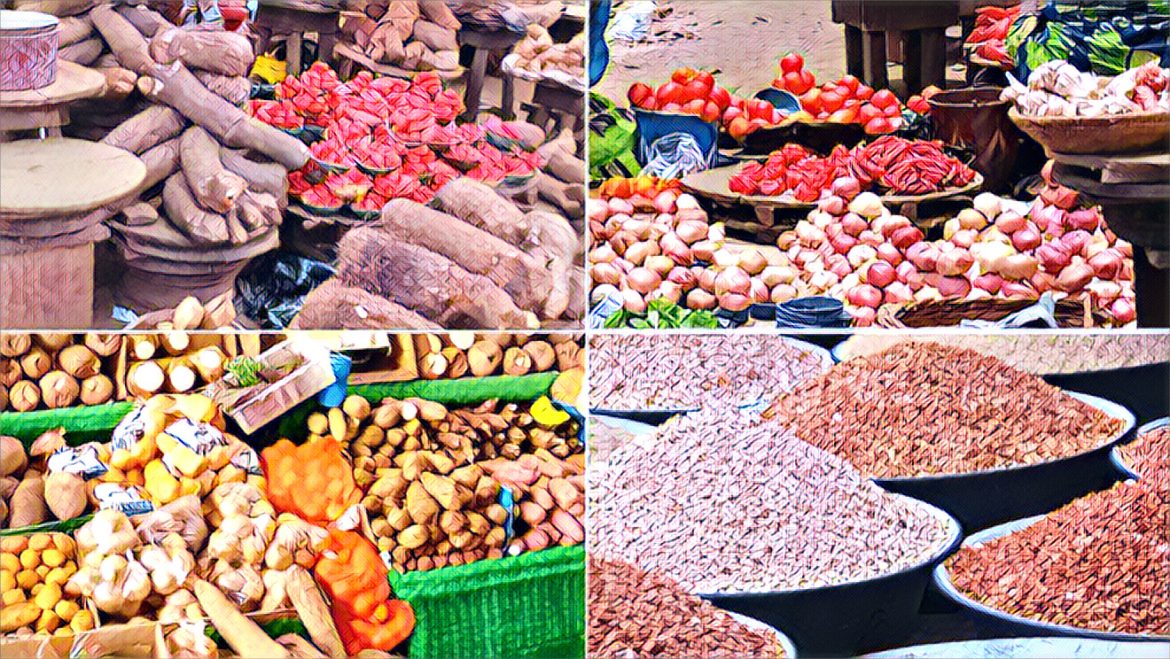Nigeria’s inflation rate surged to 34.19 percent in June 2024, up from 33.95 percent in May, according to the National Bureau of Statistics (NBS). This data, part of the NBS consumer price index (CPI) report, highlights the ongoing economic challenges faced by the country, with food prices playing a significant role in this increase.
The CPI measures changes in the prices of goods and services. In June, food inflation spiked to 40.87 percent as the cost of food and non-alcoholic beverages continued to rise. The NBS report highlighted that the headline inflation rate in June rose by 0.24 percentage points compared to May 2024.
Year-on-year, the headline inflation rate was 11.40 percentage points higher than the rate recorded in June 2023, which was 22.79 percent. This increase indicates a significant rise in the inflation rate when comparing June 2024 to the same month the previous year. On a month-on-month basis, the headline inflation rate in June 2024 was 2.31 percent, a 0.17 percent increase from May 2024’s rate of 2.14 percent. This shows that the average price level in June increased at a higher rate than in May.
Food inflation, a key driver of the overall inflation rate, was particularly notable. On a year-on-year basis, the food inflation rate in June 2024 was 40.87 percent, a substantial increase of 15.62 percentage points from June 2023’s rate of 25.25 percent. This surge in food prices was attributed to higher costs for items such as millet, garri, guinea corn, bread, cereals, yam, groundnut oil, palm oil, and catfish.
Month-on-month, the food inflation rate in June 2024 was 2.55 percent, marking a 0.26 percent rise from May 2024’s rate of 2.28 percent. The NBS pointed out that this monthly increase was driven by higher prices for groundnut oil, palm oil, water yam, coco yam, cassava, and various types of fish, including catfish and mudfish. The average annual rate of food inflation for the twelve months ending in June 2024 was 35.35 percent, an increase of 11.31 percentage points from the average annual rate recorded in June 2023, which was 24.03 percent.
The report also provided a breakdown of inflation rates across different states. Edo, Kogi, and Cross River states experienced the highest food inflation rates in June 2024, with 47.34 percent, 46.37 percent, and 45.28 percent, respectively. In contrast, Nasarawa, Bauchi, and Adamawa states saw the slowest year-on-year food inflation increases, recording rates of 34.31 percent, 34.78 percent, and 35.96 percent, respectively.
On a month-on-month basis, Yobe, Adamawa, and Taraba states had the highest food inflation rates in June 2024, with rates of 4.75 percent, 4.74 percent, and 4.12 percent, respectively. Meanwhile, Nasarawa, Kano, and Lagos states recorded the slowest month-on-month food inflation increases, with rates of 0.14 percent, 0.96 percent, and 1.25 percent, respectively.
This rising inflation, particularly in food prices, poses significant challenges for Nigeria’s economy. The increase in the cost of basic necessities impacts households across the country, particularly those with lower incomes who spend a larger portion of their income on food.
The Nigerian government has been struggling with various economic issues, including currency fluctuations, supply chain disruptions, and global economic pressures, all of which contribute to the rising inflation. Addressing these challenges requires comprehensive economic policies and interventions to stabilize prices and support economic growth.
Efforts to curb inflation have included monetary policy adjustments by the Central Bank of Nigeria (CBN), aimed at controlling money supply and stabilizing the naira. However, these measures have had mixed results, with inflation continuing to rise despite these efforts.
Additionally, external factors such as global food prices and international trade dynamics play a role in Nigeria’s inflationary pressures. The country’s reliance on imported goods makes it vulnerable to global price fluctuations and supply chain disruptions. The NBS report highlights the urgent need for effective policy measures to address the underlying causes of inflation. This includes strategies to boost domestic food production, improve supply chain efficiencies, and manage currency stability.


